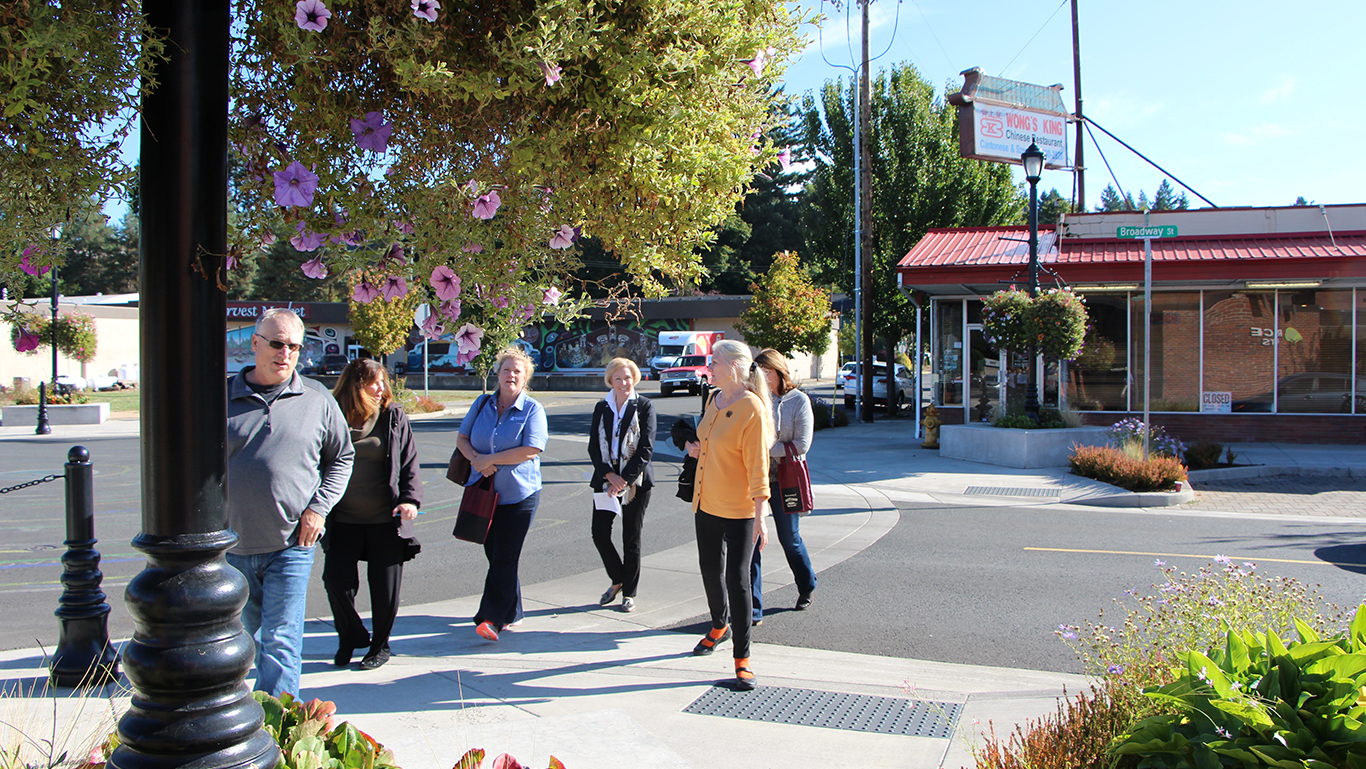After another year of historic wildfires, deadly heat waves, and compounding public health crises, Oregon needs now more than ever to support local government efforts to connect communities while improving access to non-polluting transportation options.
Transportation and Growth Management grants provide planning resources to help Oregon jurisdictions address transportation, land use and growth management issues in their communities, with grants ranging from $100,000 to $250,000 available to local governments for transportation and land use planning work that boosts walking, biking, and transit use.
In February of 2020, Oregon Governor Kate Brown issued Executive Order 20-04, directing agencies to “exercise any and all authority and discretion vested in them by law to help facilitate Oregon’s achievement of (the state’s climate pollution reduction goals).” Emissions from the transportation sector are the single largest source of climate pollution in Oregon and these emissions cause disproportionate exposures for people of color, particularly Black Oregonians. Actions to reduce pollution from the transportation sector can thus achieve Oregon’s pollution reduction goals while providing substantial public health co-benefits by reducing pollutants from the combustion of gasoline and diesel fuel that are harmful to human health.
The Transportation and Growth Management (TGM) program is a joint effort of the Oregon Department of Transportation and the Oregon Department of Land Conservation and Development. Founded in 1993, the program supports community efforts to expand transportation choices. By linking land use and transportation planning, TGM works in partnership with local governments to create vibrant, livable places in which people can walk, bike, take transit, or, if necessary, drive where they want to go.
Although total amount awarded varies, some $2.6 million have been awarded in this program’s previous cycles. Grantees must provide a match of 12 percent or more of the total project cost, in the form of cash, staff time, monetized volunteer time, and direct project expenses.
The 2022 Transportation and Growth Management Program Planning Grant application period will reopen in spring 2022. Pre-applications are due in late March, with full applications due in late July. Awards will be announced in late September. Eligible applicants include cities, counties, councils of government on behalf of a city or county, and tribal governments. Certain special districts are eligible, and applicants may join together to propose a project. Example projects could include updates to transportation system plans or other actions to implement the forthcoming Climate-Friendly and Equitable Communities administrative rules.
By providing local governments the tools and resources they need to foster a connected, accessible, and sustainable transportation system, the TGM program addresses statewide priorities for climate and equity, and supports the development of a cleaner, safer, and more equitable Oregon.
TGM Success Stories: Bridging the Gap in Washington County
In 2014, the TGM program helped Washington County build a bridge to reconnect an economically and ethnically diverse neighborhood of over 900 homes while improving public health outcomes. Before the construction of the Augusta Lane Pedestrian/Bicycle Bridge, students of Beaver Acres Elementary School went 1.5 miles out of their way, and along busy arterial roads, to reach the school. Now, the multimodal connection across Beaverton Creek serves as a lifeline for this community by linking them to public greenspace, vital transit stops, and cutting the journey to school by more than half. According to the project’s health impact assessment, the bridge provides substantial public health and social benefits to the community by decreasing chronic disease rates through physical activity, promoting greater social cohesion among neighbors, and improving academic performance. Success stories like this underscore the role TGM resources play in improving local access to multimodal transportation options while bringing benefits to community wellbeing.
Click here to learn more or contact Aimée Okotie-Oyekan at 971.239.9451.
Contributed by: Aimée Okotie-Oyekan | Oregon Department of Land Conservation and Development
